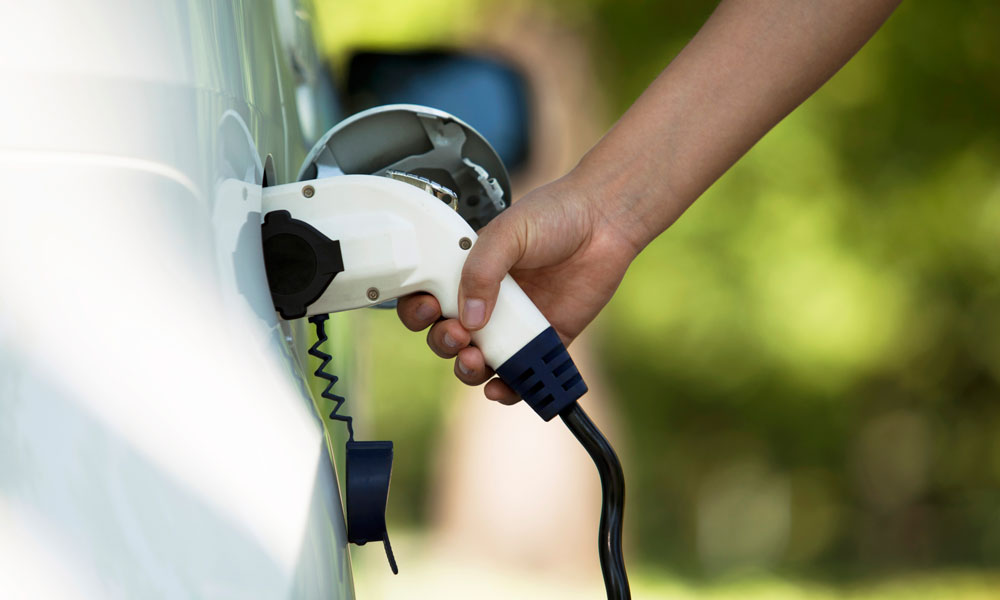
New Association Wants To Make Driving An Electric Vehicle Easier
To enhance the electric vehicle ownership experience, a new association is working to streamline the process of charging these cars.
There’s a new association working to make it easier for people to charge their electric cars.
Announced last week at the Los Angeles International Auto Show, the ROEV Association will work to adopt and promote interoperability standards for public electric vehicle (EV) charging stations in the United States.
Currently, EV drivers need to have accounts with different EV charging networks, which each require different access cards, and need to use various mobile apps to find public charging stations across the country. This can be a hassle when it comes to unplanned charging.
Under ROEV’s new streamlined system, EV drivers will only need one card to use charging stations operated by the association’s three founding charging network members, which operate 91 percent of public charging ports.
“Much like bank cards make it possible to withdraw funds from any ATM, drivers with a participating EV charging network account will be able to charge their EV at other participating charging stations,” the group wrote in a statement. “By improving the convenience of public EV charging, ROEV’s charging network interoperability will enhance the EV ownership experience for current and future drivers.”
The remaining founding members of ROEV include BMW of North America and Nissan—two of the leading EV automakers. Several other car manufacturers and charging networks have joined ROEV as members, and the association hopes that by expanding membership even further, the EV charging experience will improve as will the EV ownership experience—leading to an increase in sales.
U.S. EV sales have been steadily increasing over the last several years. InsideEVs.com estimated that 123,049 plug-in cars had been sold in 2014, compared to 97,507 in 2013 and 52,607 in 2012.
Realizing the potential rise in EVs, the Edison Electric Institute (EEI), the trade group representing the electric utility industry, last year began encouraging its members to help build the infrastructure for these vehicles.
“Electrifying the transportation sector is a proactive, positive strategy: It enables significant economic and environmental benefits and new opportunities for consumer engagement,” the institute stated in its report, “Transportation Electrification: Utility Fleets Leading the Charge” [PDF].
EEI also encouraged industry members to set an example by investing in electric vehicles and other plug-in technology when adding to their company’s vehicle fleets. It also outlined a number of benefits to this strategy, including a potential for cost savings on maintenance and fuel, safety benefits for utility crews, the ability to work more hours in areas with noise restrictions, and a reduction in carbon emissions.
(iStock/Thinkstock)






Comments